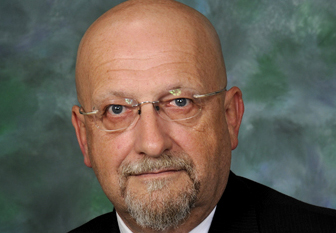
 Since the tragic loss of 23 nursing home patients in a bus fire during the September 2005 Hurricane Rita evacuation, Washington, DC, the media and the nation have become increasingly interested in preventing motorcoach, transit and school bus fires.
Since the tragic loss of 23 nursing home patients in a bus fire during the September 2005 Hurricane Rita evacuation, Washington, DC, the media and the nation have become increasingly interested in preventing motorcoach, transit and school bus fires.
Several years ago, the U.S. DOT Volpe Transportation Center in Cambridge, MA conducted a study of fires in motorcoaches to try to assess the scope of the problem. Their findings were startling. Since 1996, we have seen a steady annual increase in the number of fires in motorcoaches to the point where we are currently being reported at one fire every two days. Many of these fires are not significant from a loss perspective and none in the U.S., apart for the Wilmer tragedy, have caused a loss of life or significant injury.
However, ABA and the Bus Industry Safety Council are taking this growing problem very seriously. We have been working jointly with our partners in safety at the Federal Motor Carrier Safety Administration over the past number of years and have developed both in-depth passenger safety briefing materials and industry emergency motorcoach fire escape recommendations.
ABA was an honorary sponsor at the first-ever international “FIVE – Fires in Vehicles Conference,” held in Gothenburg, Sweden a few weeks ago. I attended the meeting, which was hosted by the SP Technical Research Institute of Sweden, a part of the Swedish government. The conference was a tremendous success, with delegates representing more than 200 of the world’s leading vehicle fire safety experts from more than 20 countries.
Topics of discussion and presentations focused fire statistics and insurance issues; fire development in vehicles; electric, hydrogen, hybrid vehicles and other alternative power source risks; incident management and case studies; heat source and fire detection and suppression in vehicles; and the current and future state of legislation, regulations and standards.
Bus fires
While the purpose of the gathering was to study causation factors and fire mitigation strategies for all types of surface transportation vehicles, the predominant theme throughout focused on bus fires. Losses of buses due to fire appear to mirror the U.S. DOT Volpe finding on a worldwide basis. Conference presenters underscored the urgency of addressing this issue before loss of life or injuries increase. A number of the presenters made a case for international vehicle fire safety standards, pointedly stating their belief in the inadequacy of the current vehicle materials burn test standard. The current standard apparently does not test surfaces that may burn vertically and does not consider smoke toxicity. These are believed to be key factors required for slowing a fire and reducing occupant risk once ignition occurs.
There was absolute agreement by all parties on the need for the early detection of high heat conditions that can ignite a fire. This is where technology will undoubtedly come to the forefront, but the question remains: what technology? So, the underlying approach is that came out of this first conference was:
- Fire harden the vehicle during construction through the use of fire resistant materials with, if possible, low combustion toxicity
- Install heat sensing devices in key ignition and fire migration points
- Increase maintenance inspections on areas and components with a known history of fire causation
- Continue advancement towards improved fire suppression systems and install them on new vehicles as they are introduced into the marketplace
- Move quickly through both legislative and regulatory means to develop a single set of international fire safety standards for conventionally fueled and alternatively-powered vehicles.
The FIVE conferences will be held ever two years from this point forward. The next conference is being planned for September 2012 in Chicago. Anyone in the industry interested in eliminating the deadly danger that fires in all types of vehicles present to the traveling public should attend. For further information on the past FIVE conferences or the 2012 event, please email me at nlittler@buses.org.
Norm Littler is ABA’s Vice President, Regulatory & Industry Affairs; Executive Director, Bus Industry Safety Council (BISC)

The publish is in reality the great on this worthy subject. I match in together with your conclusions and looking out ahead on your coming updates. Simply saying many thanks won’t simply be enough, for the great readability inside your writing. I have grabbed your rss feed to stay knowledgeable of any updates. Gratifying work and much achievement in your online business dealings!